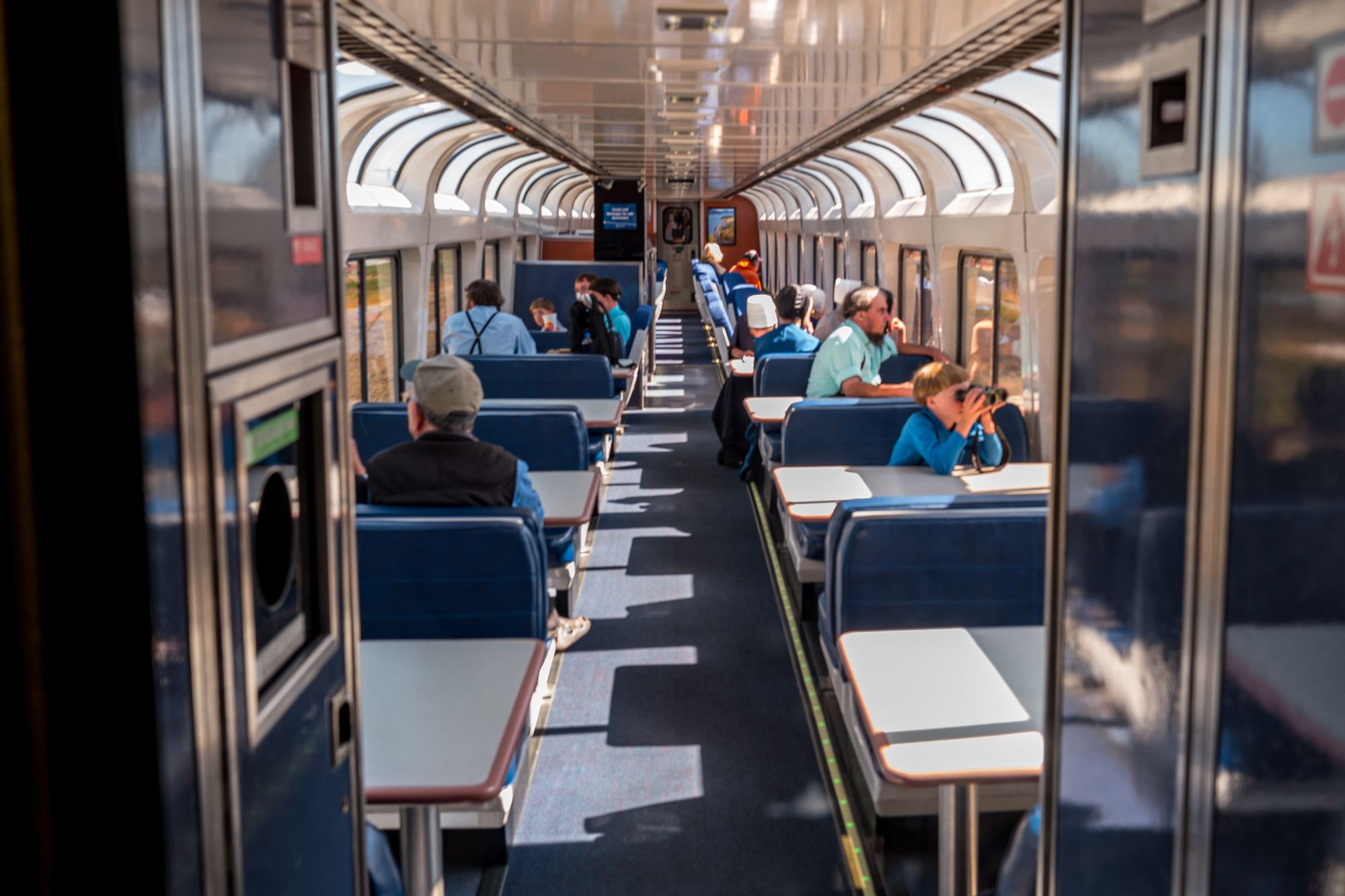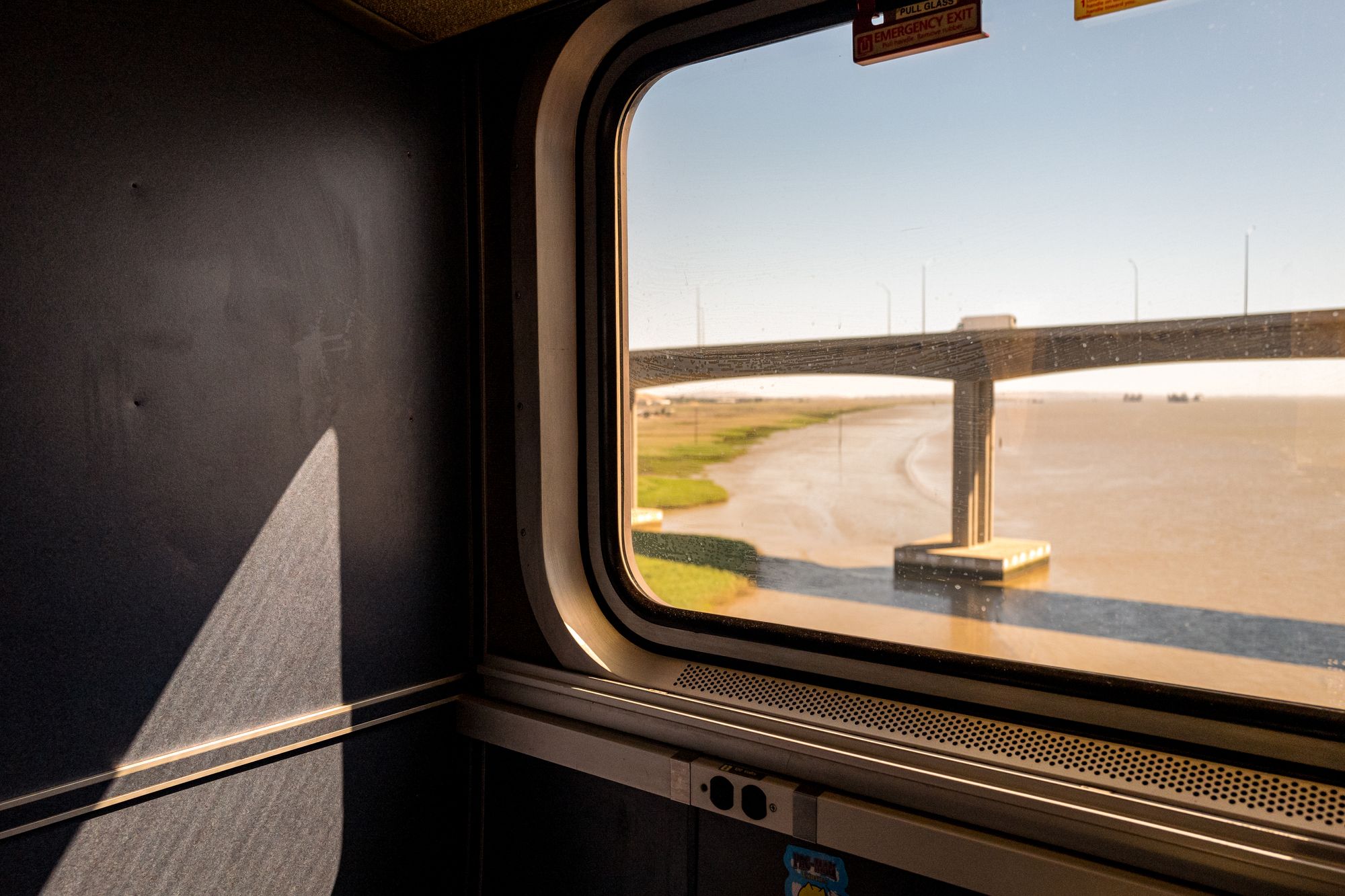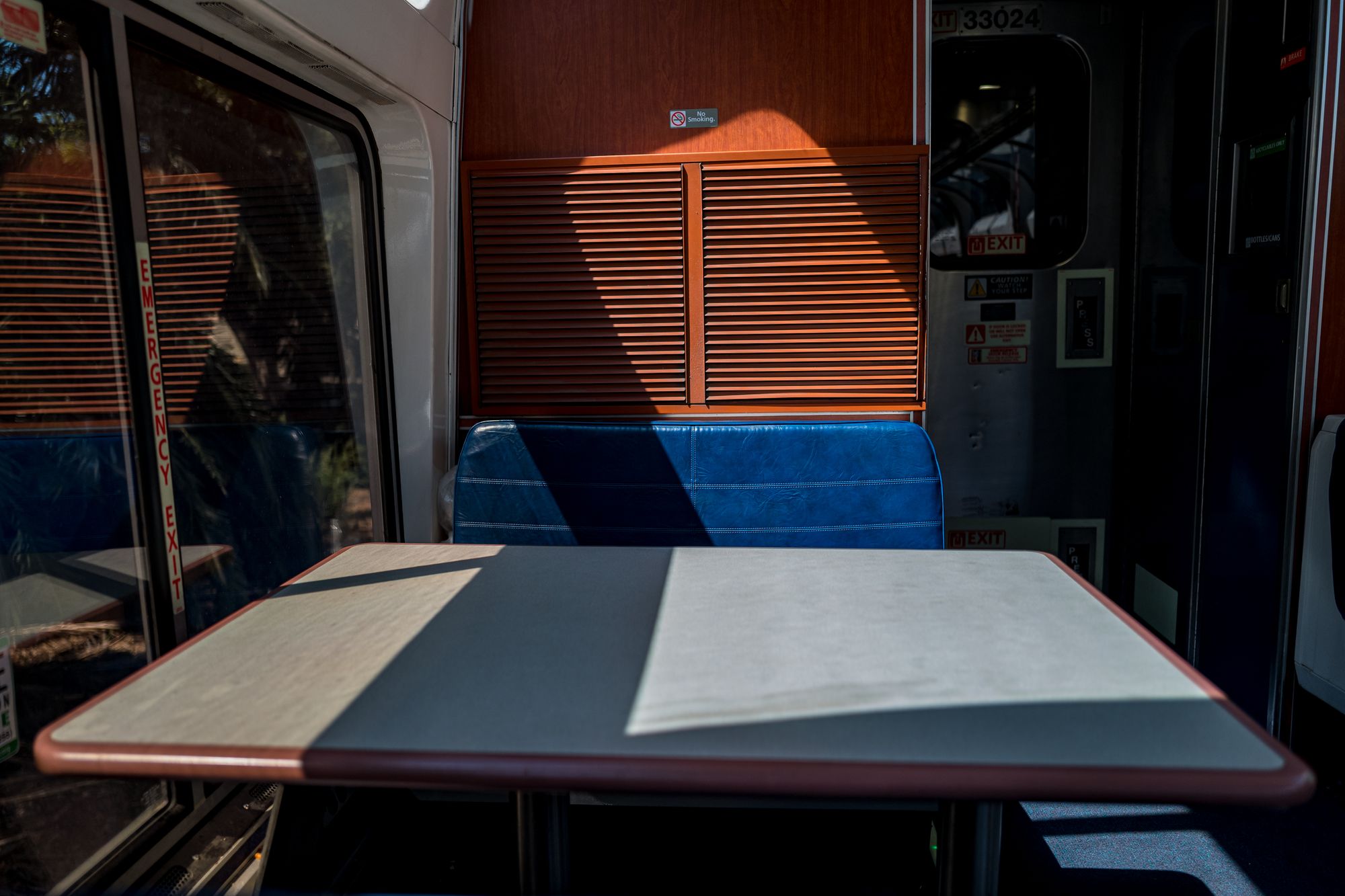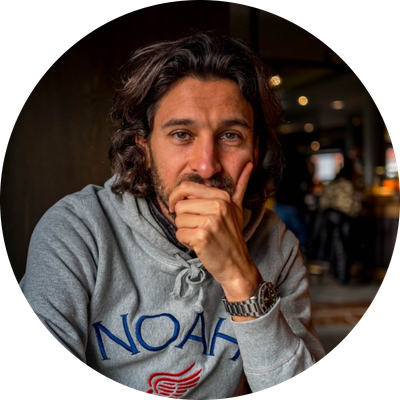[M3] Emergency Exit
When I was young, I summered in Maine at the lake house my Father built and recall but a handful of North American jaunts. Beyond that, bupkis. There was a lack of cultural curiosity in the house, and circumstances that called for frugality. And yet something in me sensed Travel, sensed more, and a longing began to set in. The local spaces I was occupying and what I was learning from them – my house, hometown, school, office, cities, and the tendrils of American culture – felt dwarfed by what was out there, and whatever it was I wanted to fold into my sense-making of the human experience. The feeling stung for years like a perennial Indian burn on the spirit.
And so, in the fall of 2016, I hit pause on the woes and thrills of Silicon Valley. It was a hard break from the game, the rules of which I had learned precisely, but the contents of which did not touch the heart. I leapt and bought a one-way train ticket New York-bound, and a one-way flight to London thereafter. At dawn some mornings later, I boarded Amtrak’s California Zephyr in its departure town, Emeryville, across the bay to the northeast of San Francisco.
I had no prior knowledge of the train across America, nor the clarity that – save for solitude – it's the people that make experiences meaningful. I dropped my bags where I’d sleep at a seat center-car, circumventing the billow of harsh light and toilet fumes abutting both gangways, and moved to the end of the coach. Tapping a large square button at my feet opened the automatic door.

It’s possible a record player scratched at the whoosh of the sliding door—all heads cocked in concert like a herd of deer in headlights. Silence but for the rhythmic thuds of steel wheels rolling across track beneath my feet.
I passed through the car to get a lay of the land, up the straight and narrow blue felt strip. Like stumbling down an airplane aisle in a bout of turbulence, alternating hands on headrests, I planted my palms to steady my effort against the sway. At the end of the car I about-faced, scanned, and moved toward the only free booth half-occupied. “May I join you?” I asked by dint of no alternative. Of course, the woman said warmly.
Marie was a widow from Sacramento, bohemian and quirky and middle-aged, grays sprouting at the roots of her untamed curls. She found herself on the train suddenly that morning in light of her nephew receiving a brain cancer diagnosis. Day-of flights were just too costly.
I lost my Dad to brain cancer when I was nine. Perhaps because of it, I have never been adept at small talk—at least until big talk is had. I find respite in knowing the range is there. And so, selfishly, I perked up at how forthcoming Marie was, and the unlikely coincidence.
Over the next few hours, only tiny silences punctuated what was a sweeping conversation, weaving together our histories, questions around faith, philosophies for a life well lived, and bemusement about the future. By this time, Marie had become something of an Aunt Marie. And then, while poking the esoterica of a generalized artificial intelligence, a gentleman with a quiet confidence came over and hovered. “It sounds like you two are having an interesting conversation—may I join?” This time, me: Of course, I said warmly.
Jim was carrying a book thick enough to be a shoe box. Without a jacket, the book spine and covers were a barren taupe save for its title embossed and set in uppercase serif: CONSCIOUSNESS, it read. Like a baton, Jim grabbed the conversation and for a track of time lost, Marie and I attended a PhD seminar on neural networks.
I had just left a job with some of the brightest minds in AI, prudent and earnest. Yet these were young minds, cocky minds. “If I ask you about war, you’d probably throw Shakespeare at me, right? ‘Once more unto the breach, dear friends.’ But you’ve never been near one. You’ve never held your best friend’s head in your lap and watched him gasp his last breath, looking to you for help.” Jim was Robin Williams in Good Will Hunting. My colleagues, Damon.
I awoke from his trance to interrupt: “I’m sorry, but who are you?” Jim joined an upstart out of Stanford in 1999 as one of the first few dozen employees. Initially called BackRub, some 12 months later the founders were well advised and trademarked the name Google. Now, long retired, Jim took Amtrak around the country to lecture at the universities where his friends held professorships.

Here we sat, three unlikely souls steeped in a Jeffersonian conversation, plotted on a vast spectrum of folks bobbing along on the train across America. Jim, Marie, passenger by passenger, the sightseer car cleared out. I stayed a while longer, not too sure what had just happened, but sure enough Travel had just initiated me. All I could think: What is this space – the sightseer car – with its amalgam of oddities, unique to anything I’d occupied before?
I made my way back to my seat, propped my feet up on my bags, reclined the backrest, and with the faint stench of blue biocide, gazed out onto the Great Basin at the Nevada-Utah border, both the sky and I softened to a twilight glow, and grinned from sea to shining sea.

Next, on Moved
